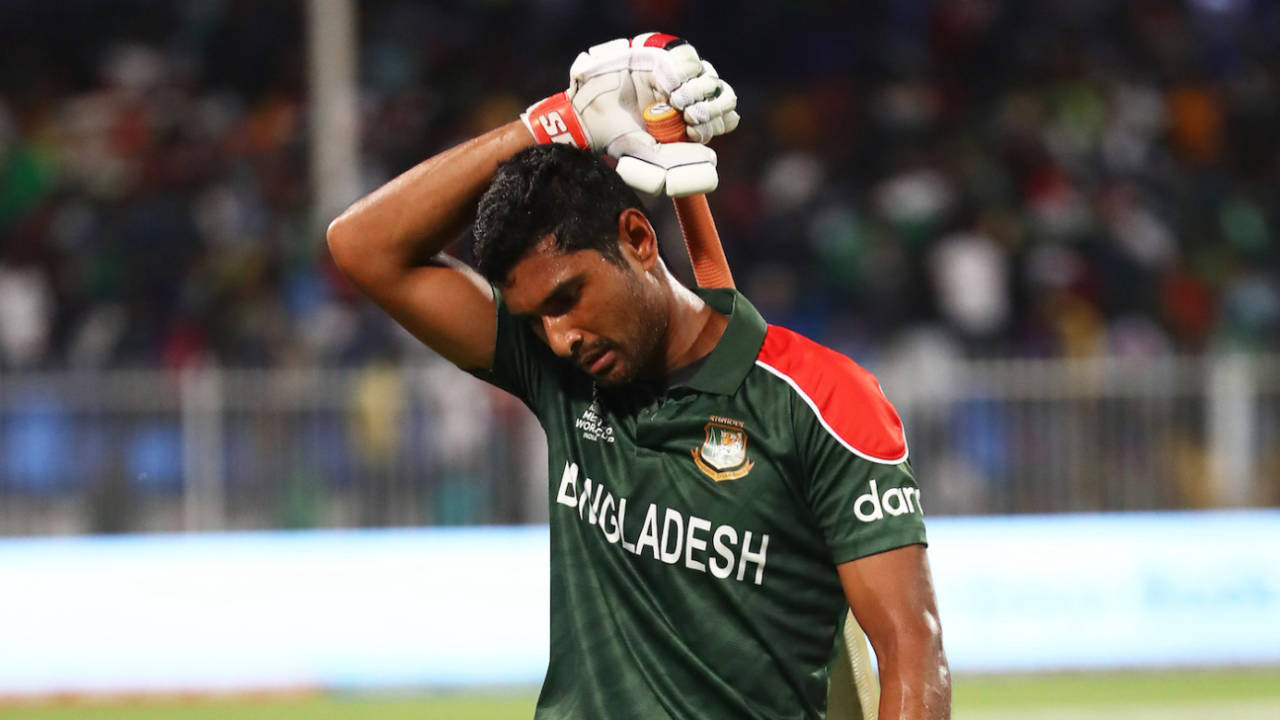Bangladesh's leadership came a cropper at the T20 World Cup. Not only on the part of
Mahmudullah, the captain of the team who has already accepted his failures, but also - unacknowledged so far - the coaching team led by
Russell Domingo and the BCB itself. As a result, a campaign that began with
a defeat against Scotland, ended with Bangladesh being bowled out for
84 and
73 against South Africa and Australia respectively. In between, they frittered away positions of strength against Sri Lanka and West Indies, and generally looked like a team that was
out of its depth in the Super 12s.
In hindsight, Bangladesh were destined for nothing but failure at the World Cup.
It started with Bangladesh banking heavily on their T20I series wins against a second-string Australia and New Zealand at home in the lead-up to the tournament. On Dhaka pitches where batting was difficult, if not impossible, the 4-1 and 3-2 wins gave them a lift all right, but hardly prepared them for the tracks in the UAE, not to mention the improved oppositions.
"Regardless of conditions, winning is important in T20s," Mahmudullah said after their eight-wicket defeat to Australia, completed in 21.2 overs. "I still believe that we needed to win those two series, especially coming into this T20 World Cup. [But] as a pro, you have to adjust to every condition."
But it was an attempt at finding a shortcut to success. Those close to the team feel that the batting group became so familiar at seeing 110-120 as winning scores that they couldn't quite adjust to different batting conditions. The lack of confidence was obvious when they couldn't get out of the blocks against Scotland and Oman. Their average total in the Super 12s was 118.2.
In between, the management opted for a radical change in the batting order. It came across as an admirable decision at first. In pushing Mahmudullah and
Mushfiqur Rahim to Nos. 7 and 8, it at least it looked like they were trying something different. But it ended up as a one-off, a big move after the Scotland loss, and just that.
The batting, in particular, was a struggle all along. They were inadequate against spin, averaging only 13.66 (considerably down from the 20.20 over the last three years). But they also had no answer against fast, short bowling, particularly against South Africa and Australia. They averaged 32 in the powerplays, one of the lowest in the tournament. They couldn't settle on an opening pair either, which might - fairly or not - lead to questions about why
Tamim Iqbal couldn't be convinced to play.
The rest of it wasn't much better either.
They dropped 11 catches in total. When it came to the quick bowlers - perhaps the one area where Bangladesh held their own - they left
Mustafizur Rahman out on a pacy, bouncy pitch against South Africa, and
Taskin Ahmed and
Shoriful Islam, who finished the tournament strongly, were brought into the XI too late.
Some of the on-field decisions were also questionable. Bangladesh's insistence on sticking to match-ups strictly based on right- or left-handers, particularly when Bangladesh had Sri Lanka on the mat in Sharjah, was puzzling. It's arguable that the obsession with match-ups cost them in three games: Scotland went from 53 for 6 to 140 for 9; Sri Lanka from 79 for 4 in the tenth over to 172 for 5; and West Indies, from 62 for 4 in the 13th over to 142 for 7.
When so much goes wrong, it's not rare for tempers to fray, or for fingers of blame to be pointed. When Bangladesh lost to Sri Lanka, Mushfiqur blamed
Liton Das' dropped catches - they were crucial, make no mistake - for things going out of Bangladesh's control. Liton came under fire from Mahmudullah too, when the captain pinpointed
his dismissal in the penultimate over against West Indies as the turning point in that game
If things were bad anyway,
Shakib Al Hasan's exit with
an injury finished Bangladesh off. After their talisman was ruled out, the players, already weighed down, looked like they had given up.
Now, looking at how things have been in Bangladesh cricket over the years, it might be time for heads to roll. Changes are needed, and they must come, but restricting these to just the playing unit might not be a fair call.

